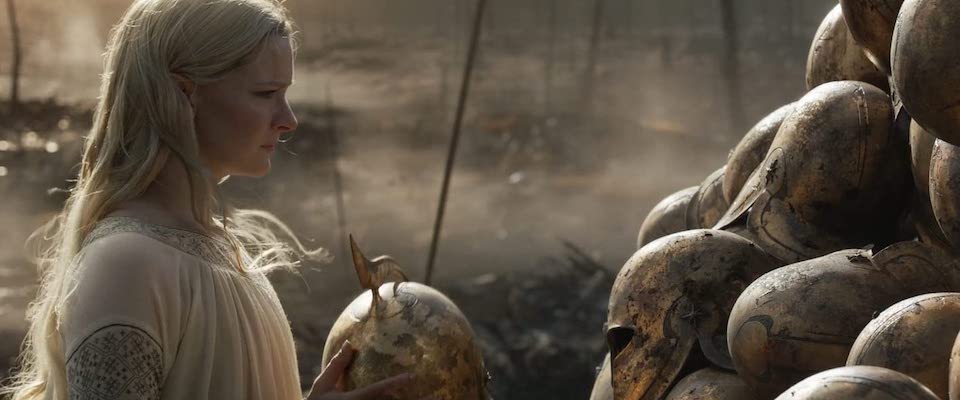I wrote about Rings of Power for both First Things and Mere Orthodoxy. There’s potential in the show, but the first season fell far short of good storytelling. At First Things, I wrote about the moral muddle of its structure:
Tolkien’s stories aren’t mystery boxes. His characters have a very clear idea of what is asked of them, even if they have no idea how to accomplish it. At the Council of Elrond, Frodo says, “I will take the Ring, though I do not know the way.” Tolkien’s heroes can take on what seem like hopeless duties—Frodo cannot guarantee that his quest will succeed, but, day by day, he chooses not to fail it. Instead of building the drama around Frodo’s long-term plans and stratagems, Tolkien treats each moment of temptation and choosing as epic in itself. In contrast, the veiled plots and many mysteries of Rings of Power mean the characters don’t know enough about their situation to know what to choose rightly, let alone how.
At Mere Orthodoxy, I got to talk more about one of the best parts of the story—the immortality of the elves.
Across the waters in Númenor, Galadriel’s visit to the island is as disorienting as the return of King Arthur might be for modern-day Britons. The people of Númenor have never seen an elf in the flesh, and their fluency with the language of the elves has become atrophied—a matter of scholarship or religion, not conversation. But, for Galadriel, the halls are familiar and the Númenoreans’ choice to break off friendship was recent and still rankles.
If the past is another country, Elves are its living ambassadors. For Men and Dwarves, their history speaks from living, foreign tongues. The Elves are, in essence, hyperobjects—“massively distributed in time and space relative to humans” in the coinage of Timothy Morton. Morton needed the term to describe ecological phenomena like climate change that are too large for humans to grapple with directly. We need statistics and other tools to image what we can see only as thin, MRI-like slices of the whole.
